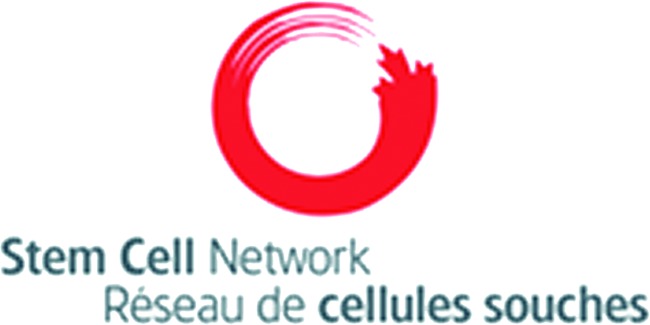Abstract
The Stem Cell Network (SCN), established in 2001 as part of Canada's Networks of Centres of Excellence program, supports leading-edge projects that translate research discoveries into new and better treatments for millions of patients in Canada and around the world. Drew Lyall, executive director of the SCN, discusses the organization's mission and accomplishments.
Introduction
Stem cells and regenerative medicine could transform the face of medicine by curing or alleviating many of today's most devastating diseases. With this belief in mind, the Stem Cell Network (SCN) was funded by Canada's Networks of Centres of Excellence program in 2001 with the mission to act as a catalyst for enabling the translation of stem cell research into clinical applications, commercial products, and public policy. It was the world's first network of stem cell researchers, singular in its unifying approach, in which basic scientists, clinicians, bioengineers, and ethicists collaborated on targeted research projects.

The Stem Cell Network (SCN), established in 2001, brings together more than 100 leading scientists, clinicians, engineers, and ethicists from universities and hospitals across Canada. The SCN supports leading-edge projects that translate research discoveries into new and better treatments for millions of patients in Canada and around the world. Hosted by the University of Ottawa, the Stem Cell Network is one of Canada's Networks of Centres of Excellence, funded through Industry Canada and its three granting councils. For more information, visit http://www.stemcellnetwork.ca.
Dr. Ron Worton spearheaded the SCN′s formation along with a team of leading Canadian researchers. Among them were Drs. Connie Eaves, Janet Rossant, Bartha Maria Knoppers, Jamie Piret, and Michael Rudnicki. Dr. Rudnicki would later take the helm as scientific director of the SCN in 2004 upon Dr. Worton's retirement.
From the outset, the SCN worked toward its goal by funding research projects that demonstrate a specific capacity for moving stem cell research from the laboratory into the clinic. Under Dr. Rudnicki's leadership, we opened our membership criteria to welcome a wider range of researchers from different disciplines, implemented goal-directed research management, and promoted partnerships as a key method of achieving knowledge translation. These initiatives are now the hallmark of the SCN′s research program.
In parallel, we initiated a robust training program to foster the next generation of stem cell researchers. It also actively sought to engage the public through education and outreach programs aimed at raising awareness of the potential of stem cells and understanding of where the science stands today.
Milestones
In a 2011 organizational review, it was documented that SCN funding had contributed to the publication of 962 peer-reviewed articles over a span of 10 years. More than 20% of these were in journals with an impact factor higher than 10.
With this much research-based knowledge, it is difficult to identify a defining breakthrough, but we are proud to claim a number of significant advances in the field of stem cell research. Of these, most notable are the expansion and propagation of adult hematopoietic stem cells; the identification of mammary epithelial stem cells, cancer stem cells, skin precursor cells, and pancreatic stem cells; understanding of cell fate determinations in muscle and embryonic stem cells; and direct conversion of human fibroblasts to blood progenitor cells.
Without question, one of our most important achievements has been advancing research in cancer. Capitalizing on the international leadership of Canadian scientists such as Drs. John Dick and Peter Dirks in tumor-initiating/cancer stem cells (CSCs), the SCN brought together a multidisciplinary team of CSC experts to develop high-throughput screens that would identify compounds to selectively target CSCs and provide new treatments for cancer.
The team has progressed quickly, identifying rapamycin, polo-like kinase inhibitors, Aurora B kinase inhibitor, and imetelstat telomerase inhibitor as brain and/or pediatric solid tumor-CSC hits. In a testament to this drug repositioning approach, the team also identified several unexpected agents as leukemia-CSC hits, including tigecycline (an antibiotic) and ciclopirox olamine (an antifungal agent).
The studies have directly led to three phase I clinical trials. The first uses rapamycin in combination with vinblastine to treat pediatric neuroblastoma. The second is deploying imetelstat to treat all pediatric solid tumors, including those of the brain. The third is assessing the use of tigecycline and ciclopirox olamine to treat patients with acute myeloid leukemia.

Finally, the team has made significant advances in understanding the basic science underlying CSC28–38, such as the identification of a core stemness signature of leukemia-CSCs, which may help predict patient outcome. The project generated U.S. $29.15 million in additional funding for CSCs through the Ontario Institute for Cancer Research and was a major catalyst behind the formation of the Cancer Stem Cell Consortium (CSCC) in 2008. This group now counts nine Canadian federal and provincial agencies, including the SCN, as its members.
Backed by an additional U.S. $38.87 million in funding, the CSCC partnered with the California Institute for Regenerative Medicine to invest in two joint research projects. The first is developing agents to directly attack leukemic stem cells that are resistant to current treatments, and the second is investigating small molecules that attack CSCs in the colon. Both expect to file Investigational New Drug applications this year.
A second area of note is the SCN′s ethical, legal, and social issues (ELSI) research stream. In this domain, the SCN has developed a world-leading program that is predicated on extensive collaboration between ethicists, lawyers, and other social scientists and policymakers, bench scientists, and clinicians. In keeping with our mandate of informing public policy, we are very active in efforts to support informed decision-making by patients, especially when considering treatments being offered outside Canada.
Prof. Timothy Caulfield, leading an SCN project, was the first to publish on the emerging phenomenon of stem cell tourism and the challenges it represents. Together with many Canadian and international collaborators, he continues to highlight the issue—for example, surveying and assessing the portrayal of stem cell research and its impact on public perceptions in the media, as well as the claims made by “rogue” clinics on their websites. The team has also extended its critical analysis to the obligations of clinicians to patients who are minors—close to 50% of patients reported visiting these rogue clinics are children—and, more recently, reaching out to the Canadian physician audience with a targeted article in Canadian Family Physician.
Looking Ahead
The SCN is operating under a limited grant that ends in March 2015. As such, we have built a number of legacy projects into our strategic plan that will help bolster stem cell research in Canada well beyond the life of the network itself. Chief among these is a research portfolio focused on cell therapy and the use of stem cells as drug screening tools, both of which are considered research strengths in Canada and can be supported through smaller government and industry grants post-SCN.
In addition, there has been significant investment in the creation of a suite of good manufacturing practices-compliant cell manufacturing facilities in Canada. The SCN has undertaken a leadership role in bringing these entities together into the CellCan consortium, whose purpose is to provide a permanent physical, management, and regulatory support infrastructure to facilitate the delivery of cell therapy in Canada.
As a government-funded research entity, we do not engage in fund-raising activities; however, we have a robust outreach program focused on ensuring that the public has access to science-based information on stem cells and can thus make informed decisions with respect to public policies and their own health and well-being. This is a need that will exist well beyond the SCN′s life span, and with this in mind, we catalyzed the launch of the Canadian Stem Cell Foundation in 2010.
As a charitable entity, the foundation will continue to provide a forum for reliable information on stem cell research and to engage researchers in their activities. To date, the foundation has engaged scientists in the creation of a number of videos that profile ongoing research and Canadian expertise in the field. It also brought researchers, philanthropists, industry, government, patients, and the public together in celebration of the 50th anniversary of the identification of stem cells by Canadians James Till and Ernest McCulloch.
We have a mandate to provide input to public policy making in Canada and have been actively involved in this area since our inception in 2001. On several occasions, our members have been asked to provide input and testimony directly related to parliamentary decisions pertaining to embryonic stem cell research in Canada.
In keeping with our mission to foster collaborative research, the SCN has consciously sought to bring stakeholders from all interest areas (science, industry, government, clinical practice, patients, and patient groups) to the table to inform not just network activities but decisions that affect research and clinical practice across the country. Finally, our ELSI research program has produced an enviable list of publications in high-impact and targeted journals. As such, we have had a direct impact not just on policy in Canada but also on the design of research projects and the direction of future clinical study.
Meet Drew Lyall, B.A.
Drew Lyall is executive director of the Stem Cell Network. He joined the SCN shortly after its founding in 2001 and now serves as its full-time manager. For 4 years prior to joining the SCN, he was the chief financial officer and corporate secretary for two start-up companies in Ottawa, one focused on the use of transgenic technologies for the production of therapeutic proteins and the other a software company. Prior to that, Lyall spent 10 years with Coopers & Lybrand specializing in business planning, strategic planning, public-private partnerships, and commercialization. He holds a B.A. in philosophy, politics, and economics from the University of Oxford and is a Chartered Accountant (U.K.) and a Certified Management Consultant (Canada).


